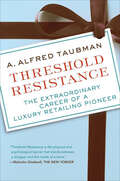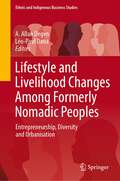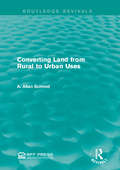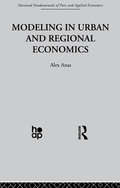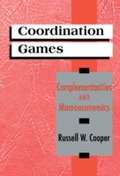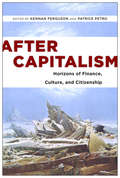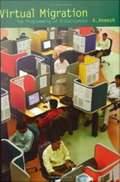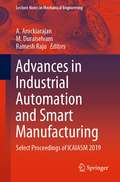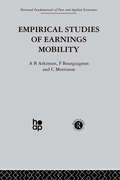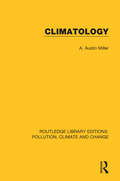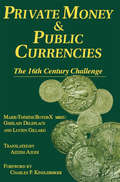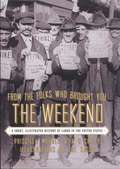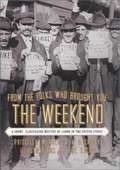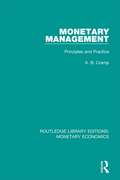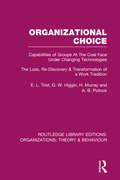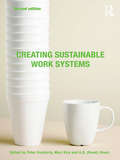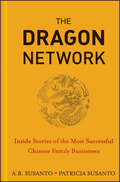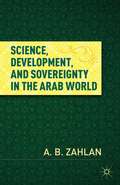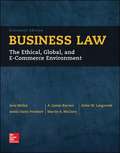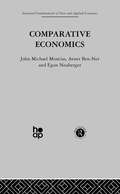- Table View
- List View
Threshold Resistance: The Extraordinary Career of a Luxury Retailing Pioneer
by A. Alfred TaubmanIn this candid memoir, A. Alfred Taubman explains how a dyslexic Jewish kid from Detroit grew up to be a billionaire retailing pioneer, an intimate of European aristocrats and Palm Beach socialites, a respected philanthropist and, at age 78, a federal prisoner. With a unique blend of humor and genius, Taubman shows how selling fine art and antiques really isn't that different from marketing root beer or football, and offers penetrating insights into that quintessential palace of commerce, the luxury shopping mall. Alfred Taubman may not have invented the modern shopping center but, in the words of The New Yorker, "he perfected it."Taubman's life has been a storybook success, with its share of unique challenges. A pioneer builder and innovative real estate developer, he was also a brilliant land speculator, operator of a quick-serve restaurant chain, and owner of a major department store company. But what seemed like the pinnacle of his career, buying and reinventing the venerable art auction house Sotheby's, would lead to his conviction in an international price fixing scandal.Despite the twists and turns, Taubman's life and business philosophy can be summed up in one evocative phrase: Threshold Resistance. Understanding and defeating that force—breaking down the barriers between art and commerce, between shoppers and merchandise, between high culture and popular taste—has been his life's work.
Lifestyle and Livelihood Changes Among Formerly Nomadic Peoples: Entrepreneurship, Diversity and Urbanisation (Ethnic and Indigenous Business Studies)
by Léo-Paul Dana A. Allan DegenContemporary policymakers, as their predecessors, continue to view nomadic people as a weak minority, and their way of life and raising livestock as a backward and inefficient paradigm. Wherever nomads are not the dominant group, the trend to settle them continues even today as in the past. This book describes the changes forced upon formerly nomadic groups and how they still attempt to maintain their traditional, social, and cultural practices in their new settings. The book deals with the several modes of livelihood of these communities, including entrepreneurship, and demonstrates the impact of investment-oriented urbanization policies leading to eviction from ancestral lands, and hurdles for nomadic mobility, ultimately threatening their survival. The book illustrates how some groups like the Borana and the Maasai practice livelihood diversity and raise productive livestock, and how other groups migrate to urban centers in search of employment and remit money to family members left in the rural areas. The book aims to raise awareness among the research community, especially those who work on regional and demographic labor policies. It helps in understanding why society needs to help build business and livelihood strategies without harming the values of nomadic groups.
Converting Land from Rural to Urban Uses (Routledge Revivals)
by A. Allan SchmidThis title aims to use social science research to contribute towards solving policy problems raised by the rural to urban land conversion process and by high land prices in particular. Ultimately, this book aims to develop the information useful to public decisions on zoning, taxation, public investments, transport systems, new towns, and so on, as they might affect the cost and quality of the conversion process. This book will be of interest to students of environmental studies.
Modelling in Urban and Regional Economics (Fundamentals Of Pure And Applied Economics Ser. #Vol. 2)
by A. AnasThis title provides a comprehensive, critical coverage of the progress and development of mathematical modelling within urban and regional economics over four decades.
Economics
by Russell Cooper A. Andrew JohnThis book is an effective, concise text for students and researchers that combines the tools of dynamic programming with numerical techniques and simulation-based econometric methods. Doing so, it bridges the traditional gap between theoretical and empirical research and offers an integrated framework for studying applied problems in macroeconomics and microeconomics. In part I the authors first review the formal theory of dynamic optimization; they then present the numerical tools and econometric techniques necessary to evaluate the theoretical models. In language accessible to a reader with a limited background in econometrics, they explain most of the methods used in applied dynamic research today, from the estimation of probability in a coin flip to a complicated nonlinear stochastic structural model. These econometric techniques provide the final link between the dynamic programming problem and data. Part II is devoted to the application of dynamic programming to specific areas of applied economics, including the study of business cycles, consumption, and investment behavior. In each instance the authors present the specific optimization problem as a dynamic programming problem, characterize the optimal policy functions, estimate the parameters, and use models for policy evaluation. The original contribution of Dynamic Economics: Quantitative Methods and Applications lies in the integrated approach to the empirical application of dynamic optimization programming models. This integration shows that empirical applications actually complement the underlying theory of optimization, while dynamic programming problems provide needed structure for estimation and policy evaluation.
Economics: Theory Through Applications
by Russell Cooper A. Andrew JohnThis textbook, Economics: Theory Through Applications, centers around student needs and expectations through two premises: ... Students are motivated to study economics if they see that it relates to their own lives. ... Students learn best from an inductive approach, in which they are first confronted with a problem, and then led through the process of solving that problem. Many books claim to present economics in a way that is digestible for students; Russell and Andrew have truly created one from scratch. This textbook will assist you in increasing students' economic literacy both by developing their aptitude for economic thinking and by presenting key insights about economics that every educated individual should know.
Macroeconomics
by Russell Cooper A. Andrew JohnThis book studies the implications of macroeconomic complementarities for aggregate behavior. The presentation is intended to introduce Ph. D. students into this sub-field of macroeconomics and to serve as a reference for more advanced scholars. The initial sections of the book cover the basic framework of complementarities and provide a discussion of the experimental evidence on the outcome of coordination games. The subsequent sections of the book investigate applications of these ideas for macroeconomics. The topics Professor Cooper explores include: economies with production complementarities, search models, imperfectly competitive product markets, models of timing and delay and the role of government in resolving and creating coordination problems.
Macroeconomics: Theory Through Applications
by Russell Cooper A. Andrew JohnThis textbook, Macroeconomics: Theory Through Applications, centers around student needs and expectations through two premises: ... Students are motivated to study economics if they see that it relates to their own lives. ... Students learn best from an inductive approach, in which they are first confronted with a problem, and then led through the process of solving that problem. Many books claim to present economics in a way that is digestible for students; Russell and Andrew have truly created one from scratch. This textbook will assist you in increasing students' economic literacy both by developing their aptitude for economic thinking and by presenting key insights about economics that every educated individual should know.
After Capitalism: Horizons of Finance, Culture, and Citizenship
by Andrew Ross A. Aneesh Geoff Mann Marcus Bullock Jeffrey Sommers Sherryl Vint Bernard C. Perley Cristina Venegas Esther Leslie Kennan Ferguson Niki Akhavan Patrice Petro Ivan AscherFrom Thomas Piketty to David Harvey, scholars are increasingly questioning whether we are entering into a post-capitalist era. If so, does this new epoch signal the failure of capitalism and emergence of alternative systems? Or does it mark the ultimate triumph of capitalism as it evolves into an unstoppable entity that takes new forms as it engulfs its opposition? After Capitalism brings together leading scholars from across the academy to offer competing perspectives on capitalism's past incarnations, present conditions, and possible futures. Some contributors reassess classic theorizations of capitalism in light of recent trends, including real estate bubbles, debt relief protests, and the rise of a global creditocracy. Others examine Marx's writings, unemployment, hoarding, "capitalist realism," and coyote (trickster) capitalism, among many other topics. Media and design trends locate the key ideologies of the current economic moment, with authors considering everything from the austerity aesthetics of reality TV to the seductive smoothness of liquid crystal. Even as it draws momentous conclusions about global economic phenomena, After Capitalism also pays close attention to locales as varied as Cuba, India, and Latvia, examining the very different ways that economic conditions have affected the relationship between the state and its citizens. Collectively, these essays raise provocative questions about how we should imagine capitalism in the twenty-first century. Will capitalism, like all economic systems, come to an end, or does there exist in history or elsewhere a hidden world that is already post-capitalist, offering alternative possibilities for thought and action?
Virtual Migration: The Programming of Globalization
by A. AneeshAneesh draws on the sociology of science, social theory, and research on migration to illuminate the practical and theoretical ramifications of virtual migration.
Advances in Industrial Automation and Smart Manufacturing: Select Proceedings of ICAIASM 2019 (Lecture Notes in Mechanical Engineering)
by A. Arockiarajan M. Duraiselvam Ramesh RajuThis book comprises selected peer-reviewed proceedings of the International Conference on Advances in Industrial Automation and Smart Manufacturing (ICAIASM) 2019. The contents focus on innovative manufacturing processes, standards and technologies used to implement Industry 4.0, and industrial IoT based environment for smart manufacturing. The book particularly emphasizes on emerging industrial concepts like industrial IoT and cyber physical systems, advanced simulation and digital twin, wireless instrumentation, rapid prototyping and tooling, augmented reality, analytics and manufacturing operations management. Given the range of topics covered, this book will be useful for students, researchers as well as industry professionals.
Empirical Studies of Earnings Mobility
by A. Atkinson Bourguinon C. MorrisDo individuals keep the same place on the earnings scale, or is there a great deal of mobility? This volume discusses the empirical studies of this issue.
Climatology
by A. Austin MillerOriginally published in 1931 (this re-issues the 8th edition of 1953), this book gives students a comprehensive account of global climatic types and the impact of climate on economics, issues of race, health, meteorology and geography. Climate change is covered from earliest times up until the middle of the twentieth century. The material is supplemented with 82 black and white maps/diagrams.
Private Money and Public Currencies: The Sixteenth Century Challenge
by M-.T.Boyer- Xambeau A. AzodiFirst Published in 1994. Routledge is an imprint of Taylor & Francis, an Informa company.
The Personal Distribution of Incomes (Routledge Revivals)
by A. B. AtkinsonFirst published in 1976, the essays in this volume are concerned with the distribution of income and wealth. The papers were first presented at the Royal Economic Society’s conference in 1974, which examined the evidence concerning the personal distribution of earnings, compared the distributions apparent in different periods and societies, and studied the association between personal attributes and income. The contributions, from internationally-renowned authors, reflect these areas, and address the questions surrounding inequality, the taxation of wealth and capital transfers that remain relevant in twenty-first century society.
From the Folks Who Brought You the Weekend
by Joe Sacco Priscilla Murolo A. B. ChittyHailed in a starred Publishers Weekly review as a work of "impressive even-handedness and analytic acuity . . . that gracefully handles a broad range of subject matter," From the Folks Who Brought You the Weekend is the first comprehensive look at American history through the prism of working people. From indentured servants and slaves in the seventeenth-century Chesapeake to high-tech workers in contemporary Silicon Valley, the book "[puts] a human face on the people, places, events, and social conditions that have shaped the evolution of organized labor" (Library Journal).From the Folks Who Brought You the Weekend also "thoroughly includes the contributions of women, Native Americans, African Americans, immigrants, and minorities, and considers events often ignored in other histories," writes Booklist, which adds that "thirty pages of stirring drawings by 'comic journalist' Joe Sacco add an unusual dimension to the book."
From the Folks Who Brought You the Weekend: A Short, Illustrated History of Labor in the United States
by Joe Sacco Priscilla Murolo A. B. ChittyHailed in a starred "Publishers Weekly" review as a work of "impressive even-handedness and analytic acuity . . . that gracefully handles a broad range of subject matter, " This is the first comprehensive look at American history through the prism of working people.
Monetary Management: Principles and Practice (Routledge Library Editions: Monetary Economics #2)
by A. B. CrampThe aim of this book, first published in 1971, is to give the student of monetary economics a clear understanding of the theoretical potentialities of monetary policy as well as the practical limitations that prevent these potentialities from being realised. This volume discusses the central bank’s operations in both long- and short-term financial markets, the effects of foreign inflows and outflows of funds, the implications of government budgetary policy, and the repercussions of the activity of non-bank financial institutions. Monetary Management should be of interest to students of finance and to all those concerned by controversies about the operation of monetary policy.
Organizational Choice: Capabilities of Groups at the Coal Face Under Changing Technologies (Routledge Library Editions: Organizations)
by E. L. Trist G. W. Higgin H. Murray A. B. PollockThis book develops and applies a new approach to the study of the working group and indeed of productive enterprises more generally. Unlike similar studies, in this volume the human is related back to the technological, and it is the socio-technical system as a whole that is the object of study. The work reported in this book shows how alternative modes of work organization can exist for the same technology, giving the possibility of organizational choice.
Creating Sustainable Work Systems: Developing Social Sustainability
by Peter Docherty Mari Kira A. B. Rami ShaniSince the first edition of this book was published, the subject of sustainability has risen to the forefront of thinking in almost every subject within business and management. Tackling the latest developments and integrating practical perspectives with rigorous research, this new edition sheds light on a vital aspect of working life. Current trends reveal that increasing intensity at work has major consequences at individual, organizational and societal levels. Sustainability in work systems thus requires a multi-stakeholder approach, emphasising a value-based choice to promote the concurrent development of various resources in the work system. This sustainability grows from intertwined individual and collective learning processes taking place within and between organizations in collaboration. In exploring the development of sustainable work systems, this book analyzes these problems, and provides the basis for designing and implementing 'sustainable work systems' based on the idea of regeneration and the development of human and social resources. The authors, who are leading researchers and practitioners from around the world, consider the existing possibilities and emerging solutions and explore alternatives to intensive work systems.
Macroeconomic Consequences of Farm Support Policies
by A. B. Stoeckel Sandy Cuthbertson David VincentAgricultural protectionism is a basic factor underlying the U.S. trade deficit, Third World debt, and global underemployment. Yet despite the seriousness of the problem and attention given to it by many researchers, little progress has been made in formulating and implementing policies to deal with it.The scholars and experts here assembled present for the first time a quantification and analysis of the impact upon the world economy of reduction or elimination of agricultural protectionism. They question why, give the magnitude of the problem, inferior policies endure despite the weight of evidence that they have failed. The answer they derive is that there is no general understanding of the true cost of the failure, and therefore it is necessary to initiate reform from outside agricultural circles.
The Dragon Network
by Patricia Susanto A. B. SusantoWhat's driving the burgeoning global Chinese family businesses?Chinese family businesses are the driving force behind Asia's economic prosperity. As the world becomes more global they have had to adapt to the new environment. This timely book draws on an extensive regional survey to reveal the key players and the strategies that will drive their success going forward. The book discusses and analyzes the business life and achievements of some prominent overseas Chinese family businesses in Asia and reveals their life philosophies, their business journey, and their family role in business. Includes analysis regarding how the senior Chinese generations prepare their children to run the business in the future Reveals that flexibility, ability to adapt to changing business environments, and resilience contribute to the success of many overseas Chinese family businessesOffers illustrative examples of successful family businesses from Malaysia, Indonesia, The Philippines, and ChinaBased in solid research and filled with illustrative examples, The Dragon Network offers an inside look at how family businesses succeed and thrive in Asia.
Science, Development, and Sovereignty in the Arab World
by A. B. ZahlanZahlan's detailed study examines recent and current performance of Arab countries and their organizations in scientific research in relation to their socio-economic development. It shows that the Arab countries are severely handicapped by a political economy dominated by technological dependence, corruption, and limited research collaboration.
Business Law
by Jane Mallor Arlen Langvardt Martin McCrory A. Barnes Jamie PrenkertMallor, Barnes, Bowers and Langvardt’s, Business Law: The Ethical, Global, and E-Commerce Environment, 12th Edition, is appropriate for the two-term business law course. The cases in the 12th edition are excerpted and edited by the authors. The syntax is not altered, therefore retaining the language of the courts. As in the 11th edition, the 12th edition includes a mix of actual AND hypothetical cases. The title has been changed to reflect a new focus of the book – the global and Internet environment. Business Law: The Ethical, Global, and E-Commerce Environment, 12e includes new pedagogy such as opening vignettes and new-boxed features such as “Ethics in Action” and “Cyberlaw in Action.” This combined with case briefs and concept reviews, along with some reorganization of the text results in a more complete, relevant and user-friendly text.
Comparative Economics
by A. Ben-Ner J. Montias E. NeubergerThe reasons, methods, and outcomes of system change in general, and in Russia and Eastern Europe in particular are analyzed, using the analytical apparatus developed in the monograph.
